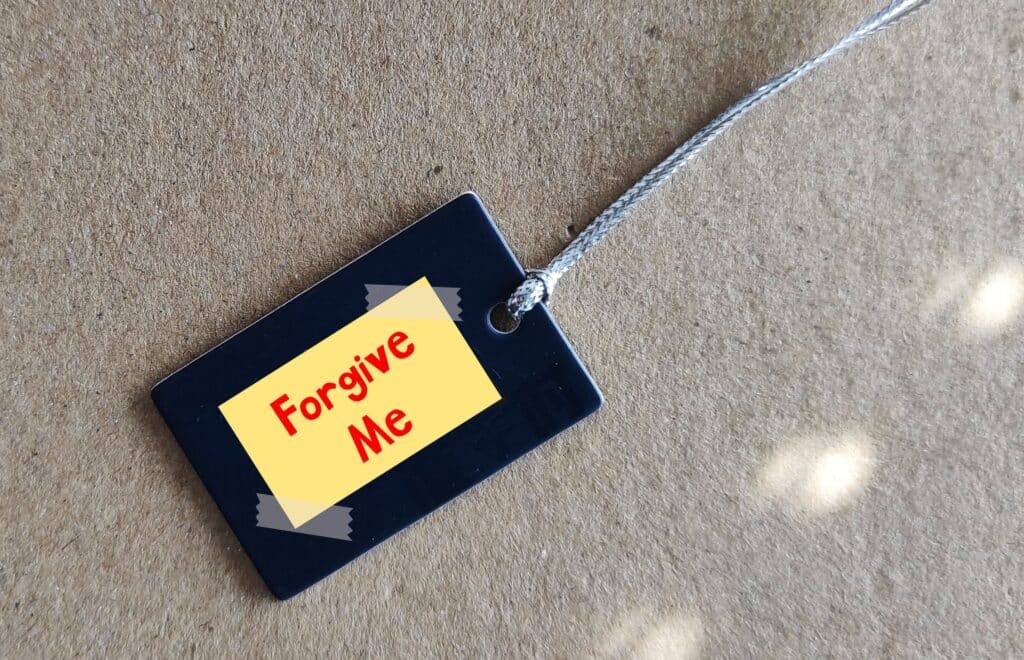
That gut punch you felt when you found out about the affair? I know it’s hard. You’re not the only one – studies show nearly 70% of people never forgive a cheating partner. That’s how deep the wound can go.
So, how do you move from heartbreak to forgiveness? How do you even start to say, “I want to heal – can we find a way forward?”
We’ll walk through what forgiveness really means, how to process the storm of emotions, and how to know if rebuilding trust is possible.
We’ll also look at how tools like Moniterro can give you clarity instead of suspicion when your trust feels shaken.
You deserve peace – not endless questions.
Understanding the Nature of Betrayal
When you ask yourself if you can forgive someone for cheating, you have to face why it hurts so much.
It’s rarely just about the act. Cheating breaks trust. It shakes your confidence. It changes how you see your future together. One moment you thought you knew where you were headed – then, suddenly, you don’t.
Betrayal can take many forms:
- Physical affairs – when your partner is intimate with someone else.
- Emotional affairs – when they share their heart with someone outside the relationship.
- Online betrayal – secret chats, flirty messages, or virtual relationships.
Each can leave deep scars. You might feel shock, anger, or sadness. You might start doubting yourself or questioning everything you believed.
Understanding what kind of betrayal happened – and why it cuts so deeply – can be the first step toward deciding if forgiveness is possible.
Deciding If Forgiveness Is Possible

When you think about forgiving a cheating spouse, you have to start with yourself.
Ask the hard questions. Has the betrayal broken your trust beyond repair? Can you forgive without pretending it never happened? Forgiveness is not about erasing the past – it’s about letting go of the grip it has on you.
Then look at your partner. Do they truly understand the hurt they caused? Are they sorry for the pain, or just sorry they were caught? Real remorse shows up in actions, not just words.
Here’s one way to figure it out:
- Write down what you need to feel safe again.
- See if your partner meets those needs consistently.
- Notice if choosing forgiveness feels like progress, not denial.
Only you can decide if forgiveness will help you heal or keep you stuck. Take your time.
Gathering the Facts Before You Heal
If you want to forgive someone for cheating, you first need the truth. Without it, your mind fills the gaps with worst-case scenarios, and that makes healing harder.
Honesty matters. You can’t rebuild trust on half-truths or vague answers. But here’s the thing – not every detail will help you heal. Some people find peace in knowing exactly what happened. Others get stuck replaying it over and over, and that only deepens the hurt.
Ask yourself – what do I really need to know to move forward? Which details will give me clarity, and which will just cause more pain?
When you talk, focus on understanding the “why” and the patterns, not reliving every moment. The truth should help you feel safer, not more wounded. Shared with care, it can be the first brick in rebuilding trust.
Using Technology to Get Clarity – How Moniterro Can Help
When trust feels shaky, guessing only makes the anxiety worse. Sometimes, you just need to know the truth so you can decide your next step. That’s where Moniterro can make a difference.
It shows you exactly what’s going on:
- Real-time GPS tracking so you know where they are and where they’ve been.
- Message and call logs from texts, phone calls, and apps like WhatsApp or Instagram.
- Social media and browsing activity that can reveal patterns you might have missed.
This isn’t about snooping for the sake of it. It’s about having facts you can trust.
If you’re in the middle of figuring out how to forgive a cheater, clarity can make or break that process. Do their actions match their promises? Or is something still off?
Here’s my advice – use it wisely. Look for patterns, not one-off moments. Keep your conversations honest. And remember, the goal is to rebuild trust, not feed doubt.
Processing Your Emotions Without Rushing Forgiveness
When someone betrays you, the emotions can hit like a storm. Anger. Hurt. Confusion. Sometimes all at once. And you know what? That’s normal.
You don’t have to pretend you’re okay when you’re not. Let yourself feel it. Sit with the discomfort. Pushing it down only makes it harder later.
Journaling can help you untangle your thoughts. Talking to a close friend or a therapist can give you perspective you might not find alone. Sometimes, just saying the words out loud lightens the weight on your chest.
Here’s what can help:
- Give your feelings room to breathe.
- Write them down or share them with someone you trust.
- Remind yourself there’s no clock ticking on your healing.
You don’t have to rush forgiveness. Taking your time is not weakness – it’s self-respect.
Rebuilding Trust Step-by-Step
If you want to forgive a cheating wife, you can’t just flip a switch and feel safe again. Trust grows back slowly – one honest step at a time.
Start with honesty. You need clear answers to your questions and follow-through on promises. Without that, you’re building on sand.
Actions matter more than words. An apology means nothing if her behavior stays the same. Real change shows up in consistency – showing up when she says she will, keeping commitments, and being open.
Set clear boundaries together. Maybe it’s daily check-ins, full transparency with devices, or agreeing to spend more time together. These agreements create a safer space to reconnect.
It’s not about pretending nothing happened. It’s about creating a new foundation – one strong enough to hold you both.
Do you want me to rewrite the earlier Moniterro section in this same tone?
Communicating Your Needs Clearly
If you want to rebuild trust, you have to speak up about what you need. How else will your partner know what it takes for you to feel safe again?
The key is to be honest without attacking. That’s where “I” statements help. Instead of saying, “You never care about me,” you can say, “I feel hurt when we don’t connect at night.” See the difference? It shifts the focus from blame to your feelings.
Why does this matter?
- It lowers defensiveness.
- It keeps the conversation about your experience.
- It encourages empathy instead of arguments.
Here’s a simple way to try it:
- Say, “I feel ___ when ___ happens.”
- Follow with, “I need ___ to feel secure.”
- Set a regular time to check in with each other.
When both of you feel heard, healing becomes a lot more possible.
Recognizing When Forgiveness Isn’t Enough

Sometimes you reach a point where forgiving someone just isn’t enough – and that’s okay.
Ask yourself – do you still feel safe, emotionally or physically? Do you still feel valued? If the answer is no, that’s a sign something’s broken beyond repair.
You might notice the betrayal happens again, even after you’ve tried to move forward. Or maybe you feel drained, unseen, and disrespected instead of supported. That’s not love – it’s survival.
If the same hurt keeps coming back, you have every right to step away. Forgiveness should bring you peace, not turn you into someone you no longer recognize.
Here’s one way to look at it:
- Think about how this relationship affects your self-worth.
- Accept that leaving can take more courage than staying.
- Remind yourself – walking away can be an act of self-respect, not failure.
You deserve healing, not endless hurt.
Conclusion
We’ve looked at how to forgive infidelity – from facing the truth to deciding if forgiveness is even possible. We’ve talked about using tools like Moniterro to get clarity, setting boundaries that protect your heart, and accepting that sometimes, forgiveness isn’t enough. Walking away can be the healthiest choice.
So, where do you go now? You take it one step at a time. You listen to your own needs instead of following someone else’s timeline. You remind yourself that your worth has nothing to do with what someone did to you.
If you’re ready, open the door to a conversation. If you’re not, give yourself space. Either way, choose peace. You deserve it.








